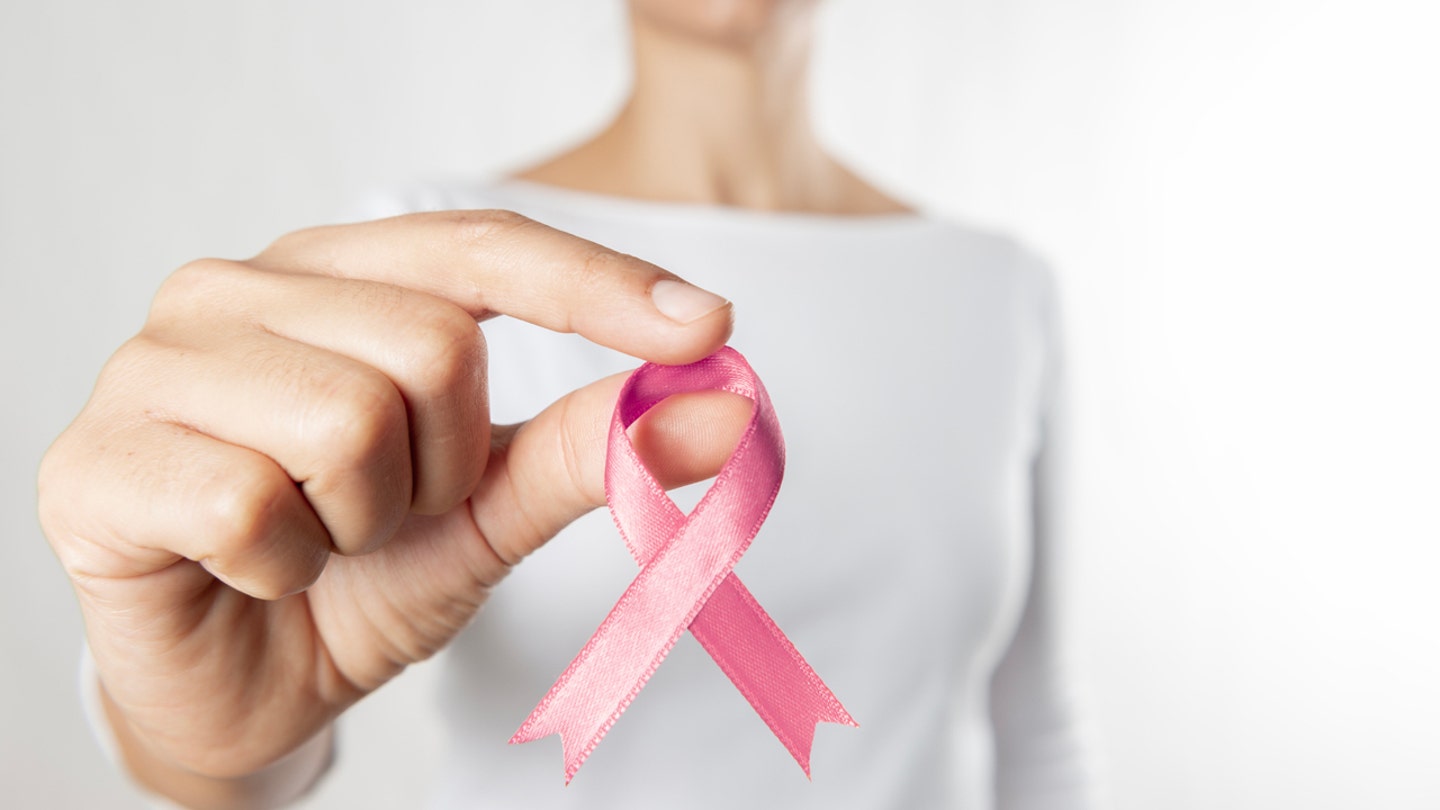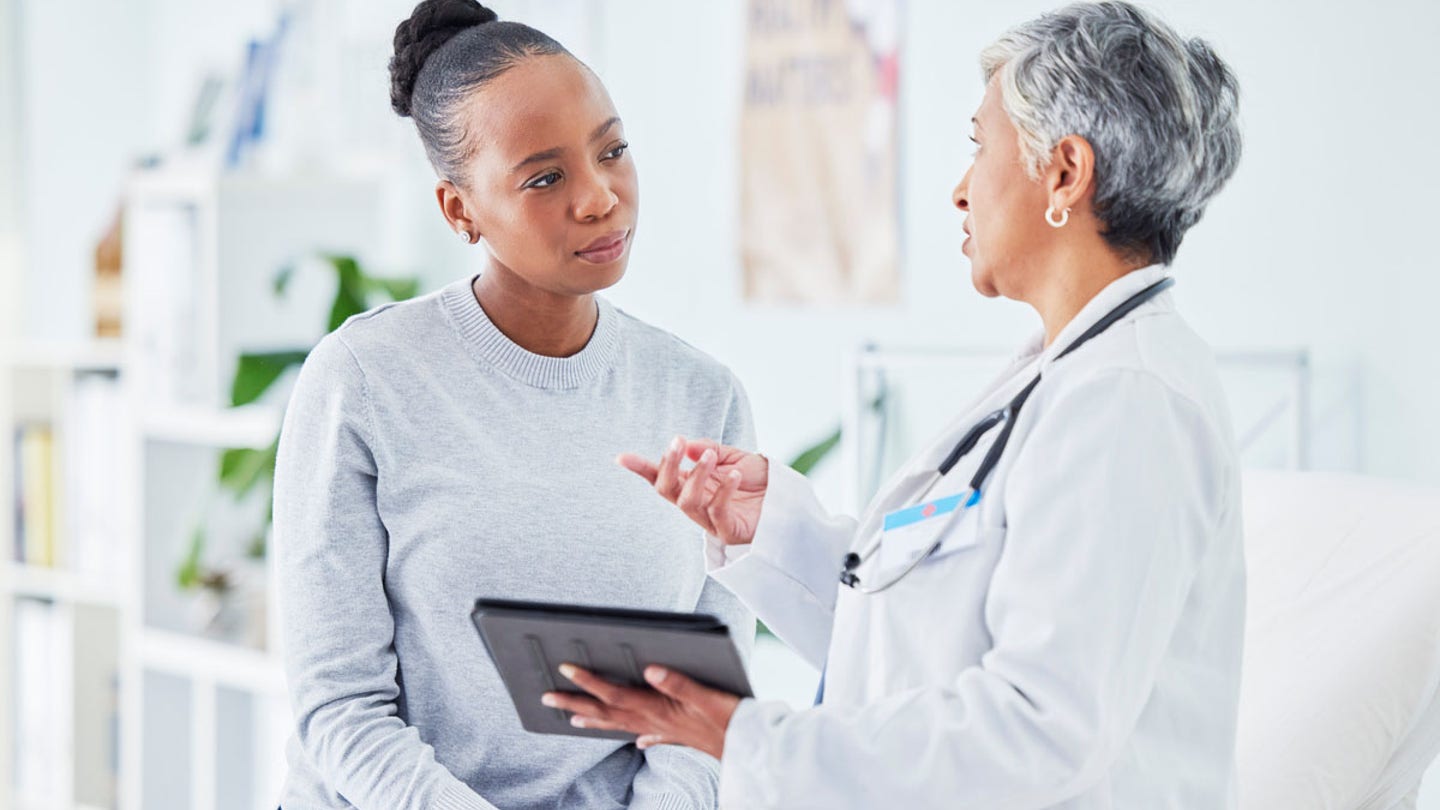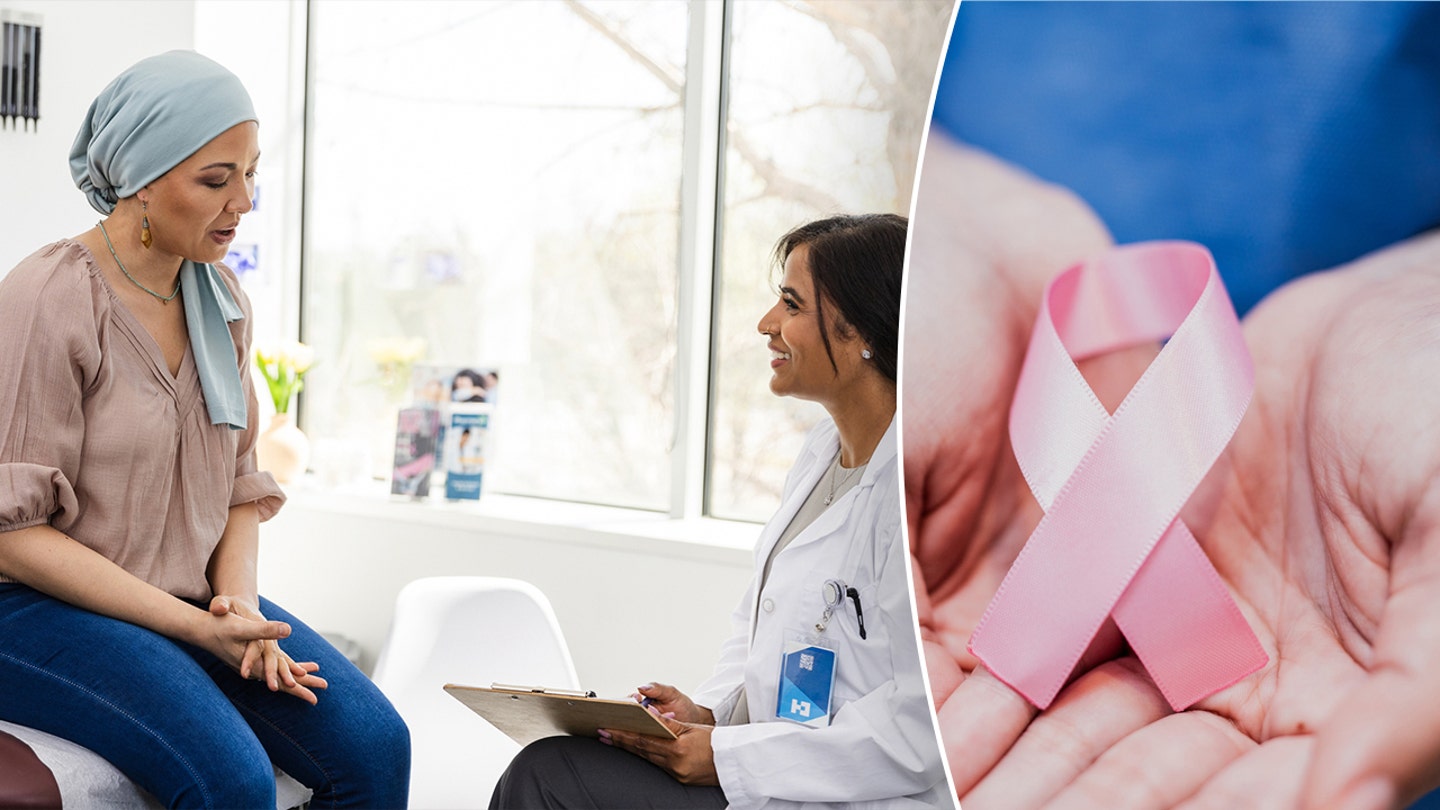One in eight women in the U.S. will be diagnosed with breast cancer at some point in their lifetime, statistics show.
The diagnosis can be shocking, scary and overwhelming, leaving the patient with a long list of questions — perhaps the first of which is, “What should I do next?”
“Hearing the words ‘you have cancer’ is life-changing and brings with it many emotions,” Tingting Tan, MD, PhD, a medical oncologist and hematologist at City of Hope Newport Beach in California, told Fox News Digital.
“Know that your feelings are perfectly normal and give yourself some time.”
‘I’M A RADIOLOGIST — TO REDUCE BREAST CANCER RISK, EAT THESE 5 FOODS AND FOLLOW THESE HEALTHY HABITS’
Fox News Digital spoke with breast cancer experts who have helped other women navigate this tough journey, gathering their guidance about what to do in the days and weeks after the diagnosis.
“Hearing the words ‘you have cancer’ is life-changing and brings with it many emotions,” a doctor said. (iStock)
1. Take a beat — and breathe
Experts agree that it’s important to give yourself time to process the news.
“It’s natural to want to rush into action, but taking some time and letting the news sink in is important,” Dr. Alyssa Middleton, a psychosocial oncologist in Louisville, Kentucky, and founder of MyCancerResources.com, told Fox News Digital.
BREAST CANCER SIGNS, SYMPTOMS TO LOOK OUT FOR, PLUS WHEN TO SCHEDULE ROUTINE SCREENING
“Allow yourself to feel the range of emotions that come with this life-altering news.”
In most cases, Middleton said, oncologists will wait several weeks to begin treatment to allow time for further testing — “so there’s no need to feel panicked about making decisions today.”
2. Write down questions and gather information
Once you’ve allowed yourself some time to process the diagnosis, it’s time to learn as much as you can from reliable sources.
“Read the information the doctor provided about the type of breast cancer you have and the stage — a number from 0-4 that describes how big the tumor is, where it is located, and how far it may have spread from the breast,” Middleton advised.

Experts recommend writing down a list of questions to ask your doctor in the days following a diagnosis. (iStock)
Next, it’s important to understand the typical treatments for your type and stage, which may include surgery, chemotherapy, radiation and/or hormone therapy.
Write down all of your questions and bring them to every doctor’s appointment, Tan advised.
“Those first appointments can be extremely emotional, and there may still be shock or disbelief,” she told Fox News Digital. “Writing your questions down will ensure you don’t forget them.”
3. Notify — and lean on — your support team
“You aren’t obligated to inform the whole world about your diagnosis,” Middleton said. “Share the news with those who you feel need to know and who will be most supportive.”
You can share as much or as little information as you like, she added. “This is your health, and you control what and how much information is shared.”
“Allow yourself to feel the range of emotions that come with this life-altering news.”
Once you’ve notified your loved ones, it can be helpful to bring a friend or family member to your appointments, Tan said.
“This time can be overwhelming, and you want to be sure you understand everything your doctor is explaining,” she said.

One in eight women in the U.S. will be diagnosed with breast cancer at some point in their lifetime. (iStock)
“Having your support system with you for an extra set of ears can be helpful if you don’t understand something or miss something.”
In your day-to-day life, it’s OK to ask for help, Tan emphasized.
“Loved ones are often ready and happy to help with preparing meals, taking kids to school, or anything and everything in between,” she said.
4. Consider a second opinion
Studies have shown that getting a second opinion after a breast cancer diagnosis can be beneficial for the patient.
“Second opinions can save lives,” Tan said.
BREAST CANCER DIAGNOSES SPIKING AMONG WOMEN UNDER 50, NEW REPORT REVEALS
“Cancer is unique, and if you are diagnosed with breast cancer, you want to see an expert who specializes in your exact type. Don’t be afraid to ask your doctor for a second opinion.”
Even if you don’t switch oncologists, seeking a second opinion can provide reassurance that you have chosen the right care team and treatment plan, Tan noted.

Studies have shown that getting a second opinion after a breast cancer diagnosis can be beneficial for the patient. (iStock)
“It is essential to do this before starting treatment, as there may be additional options that you should consider,” she said.
Another breast oncologist may have different recommendations on how to treat your breast cancer, Middleton agreed.
“If the treatment recommendation is the same, you can decide which oncologist you feel most comfortable with and move forward with them,” she said.
“If the treatment recommendation differs, you can decide which approach you prefer.”
5. Build your care team
When it comes to seeking care, it’s vital to seek experts who specialize in breast cancer, Tan said.
She recommends choosing an oncologist who practices at a cancer center that’s designated by the National Cancer Institute (NCI).
“When breast cancer is localized – meaning it hasn’t spread outside the breast – the five-year survival rate is 99%.”
“Getting on the right treatment plan at the beginning of your journey is very important,” she said. “Physicians at academic medical centers are the most up to date on the latest treatment breakthroughs and options in the field.”
Dr. Anjeanette Brown, MD, a board-certified breast surgeon at the Premier Surgical Network in New Jersey, emphasized the importance of choosing a health care professional with the proper credentials.

Experts recommend choosing an oncologist who practices at a cancer center that’s designated by the National Cancer Institute (NCI). (iStock)
“This person should be your ‘quarterback,’ directing the essential steps that need to be taken for proper evaluation and imaging prior to going into surgery,” she told Fox News Digital.
It’s essential that the patient feels comfortable with her provider, Brown noted.
“This will be a long, intense relationship, dealing with emotions and physical changes that are about to happen, secondary to surgical intervention, as well as possible medical management,” she added.
THESE 17 CANCER TYPES ARE MORE COMMON IN GEN X AND MILLENNIALS, AS STUDY NOTES ‘ALARMING TREND’
Dr. Lauren Ramsey, a breast cancer surgeon in Ft. Worth, Texas, specifically recommends seeing a breast surgeon (surgical oncologist) in a timely fashion — ideally a provider who has completed a specialized fellowship in breast surgical oncology.
“Other doctors, such as medical oncologists and radiation oncologists, may end up playing a role — however, the breast surgeon will be able to make those referrals for you,” she said.
6. Connect with others
Many women find invaluable support from other breast cancer patients and survivors.
“Online groups can be a great source of support, with others who are further along in treatment sharing their experiences and supporting you in your journey,” said Middleton.

Many women find invaluable support from other breast cancer patients and survivors. (iStock)
“If you’re feeling overwhelmed with all the information that’s been thrown at you, you may want to wait a little while to do this,” she added.
7. Think about fertility
For patients who want to have children in the future, it’s important to consider this before beginning treatment, according to Middleton.
CLICK HERE TO GET THE FOX NEWS APP
“You’ll want to meet with a fertility specialist to learn about your options and make arrangements for any procedures to be done before any breast cancer treatment starts,” she advised.
8. Focus on the good news
While a breast cancer diagnosis can seem ominous, experts agree that prognoses have improved over the decades.

“Breast cancer mortality rates have dropped by 44% since 1989, thanks to early detection and treatment,” a doctor said. (iStock)
“Breast cancer mortality rates have dropped by 44% since 1989, thanks to early detection and treatment,” Tan said.
“When breast cancer is localized – meaning it hasn’t spread outside the breast – the five-year survival rate is 99%, based on NCI data of women diagnosed with breast cancer between 2013 and 2019.”
“It’s a lot, so there is no shame in reaching out to others.”
There are also more than four million breast cancer survivors in the U.S., Tan added.
9. Maintain an active and healthy lifestyle
Exercise is recommended even with a breast cancer diagnosis, Ramsey said.
CLICK HERE TO SIGN UP FOR OUR HEALTH NEWSLETTER
“We recommend any form of physical activity, whether it’s light walking or a more structured exercise,” she advised. “Continue performing your usual daily activities.”
Adopting a balanced and nutrient-dense diet can also help support the body during treatment and recovery, Ramsey added.

Exercise is recommended even with a breast cancer diagnosis. (iStock)
“Focus on lean proteins, fruits, vegetables, whole grains and healthy fats,” she said. “Avoid sugary and highly processed foods.”
10. Take care of yourself
It’s important to pay attention to your emotional, psychological and spiritual needs throughout a breast cancer journey, Tan advised.
Brown echoed the importance of self-care.
For more Health articles, visit www.foxnews.com/health
“This could include a discussion with a nutritionist, giving yourself the space to accept and adjust to the diagnosis, and finding a support group or therapist,” she said.
“It’s a lot, so there is no shame in reaching out to others.”
